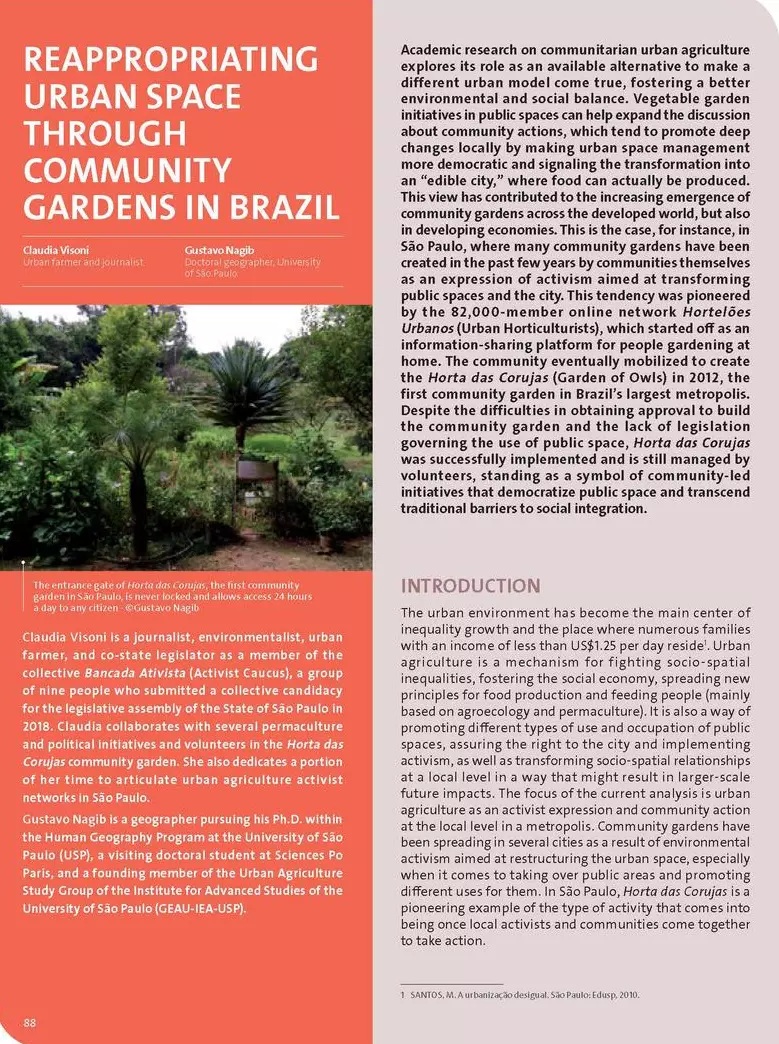Claudia Visoni, Urban farmer and journalist
Gustavo Nagib, Doctoral geographer, University of São Paulo
Academic research on communitarian urban agriculture explores its role as an available alternative to make a different urban model come true, fostering a better environmental and social balance. Vegetable garden initiatives in public spaces can help expand the discussion about community actions, which tend to promote deep changes locally by making urban space management more democratic and signaling the transformation into an “edible city,” where food can actually be produced.
This view has contributed to the increasing emergence of community gardens across the developed world, but also in developing economies. This is the case, for instance, in São Paulo, where many community gardens have been created in the past few years by communities themselves as an expression of activism aimed at transforming public spaces and the city. This tendency was pioneered by the 82,000-member online network Hortelões Urbanos (Urban Horticulturists), which started off as an information-sharing platform for people gardening at home. The community eventually mobilized to create the Horta das Corujas (Garden of Owls) in 2012, the first community garden in Brazil’s largest metropolis.
Despite the difficulties in obtaining approval to build the community garden and the lack of legislation governing the use of public space, Horta das Corujas was successfully implemented and is still managed by volunteers, standing as a symbol of community-led initiatives that democratize public space and transcend traditional barriers to social integration.



